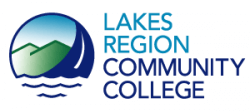Academic Eligibility For Financial Aid – Satisfactory Progress
 In order to become and remain eligible to receive Title IV financial aid, such as a Federal Pell Grant, a Direct Loan (Stafford, PLUS), a Federal Supplemental Educational Opportunity Grant (FSEOG), Federal Work Study (FWS) and/or a Federal Perkins Loan, a student must:
In order to become and remain eligible to receive Title IV financial aid, such as a Federal Pell Grant, a Direct Loan (Stafford, PLUS), a Federal Supplemental Educational Opportunity Grant (FSEOG), Federal Work Study (FWS) and/or a Federal Perkins Loan, a student must:
1. Have been formally accepted into a degree, diploma or eligible certificate program. Generally, the program must carry a minimum of 24 credit hours to be an eligible program, or 16 credit hours for certificate programs. A student must be at least a halftime student in order to qualify for a Direct Loan. In a regular length semester, half-time is the equivalent of 6 credits. Less than half-time students are eligible for a Pell Grant.
2. Make satisfactory progress toward the achievement of their educational goals. Standards for this progress are both qualitative and quantitative and are reflected in both cumulative grade point average (CGPA) and “incremental” progress in terms of completing a minimum amount of work at stated intervals
Qualitative Standards Are As Follows:
0–13 credits earned. . . . . . 1.50 minimum cumulative GPA
14–27 credits earned . . . . . . 1.70 minimum cumulative GPA
28–40 credits earned . . . . 1.80 minimum cumulative GPA
41+ credits earned . . 2.00 minimum cumulative GPA
Qualitative satisfactory progress is reviewed at the end of each semester by the financial aid officer.
Qualitative Warning
Students who fail to meet the qualitative standards for satisfactory progress will be placed on satisfactory progress warning for one semester. During this semester they will continue to be eligible for financial aid, but must bring their cumulative grade point average up to the required standard. If a student does not bring his/her GPA to the required standard during the warning semester, the student will be ineligible to receive financial aid for the following semester. Aid can only be reinstated after a student has met the required standards listed above. Withdrawal and readmission do not necessarily change the student’s satisfactory progress status.
Quantitative Standards
Completion Rate Component
- A student must successfully complete at least two-thirds (66.666%) of the total credits he/she attempts throughout his/her academic career at the college. All attempted credits resulting in either an academic grade or administrative transcript notation will be included in the quantitative calculation.
- For example, a student who has enrolled in 36 credits throughout his or her academic career at the college must pass more than 24 credits in order to be making Satisfactory Academic Progress.
Maximum Time frame Component
- A student may receive student federal aid for any attempted credits towards his or her program of study as long as those credits do not exceed 150% of the published length of the student’s program of study.
For example, a student enrolled in an eligible 24 credit certificate program can receive financial aid for up to 36 credits attempted. Likewise, a student enrolled in a program of study which requires 64 credits to earn the degree may receive student federal aid for a maximum of 96 credits attempted.
Quantitative Warning
Students enrolled in Associate Degree, Certificate, Professional Certificate or Diploma programs who fail to meet the quantitative standards for satisfactory progress will be placed on satisfactory progress warning for one semester. During this warning semester, students will continue to be eligible for financial aid, but must bring their cumulative number of credits earned to the required standard. (Transfer credits can be used to make up deficiencies in credits earned.) If during the semester of warning the student does not bring up the cumulative number of credits earned to the required standard, the student will be ineligible for financial aid the following semester. Aid can be reinstated only after a student has met the required standards listed above. Withdrawal and readmission do not necessarily change the student’s satisfactory progress status.
Appeal Procedure
If a student is ineligible for Financial Aid based on satisfactory progress, the student may appeal for review of that determination. Students claiming extenuating circumstances should first appeal in writing to the Financial Aid Director. Next appeal should be made in writing to the President of the Institution or a designee within 15 working days following the Financial Aid Director’s decision. A successful appeal may preserve the student’s eligibility for financial aid in the following semester.
Regaining eligibility
Students who are denied financial aid for failure to maintain satisfactory progress must regain their eligibility during future semesters at their own expense. Aid can be reinstated only after a student has met the required standards listed above. Withdrawal and readmission do not necessarily change the student’s satisfactory progress status. Suspended students who are being readmitted may not be eligible for financial aid on their return unless they have taken courses in the interim and raised their GPA to satisfy the qualitative and quantitative requirements.
Academic Amnesty
Students who are granted academic amnesty should be aware that previous grades will be used to evaluate Satisfactory Progress (Quantitative and Qualitative) for financial aid purposes even though they are not included in the new academic grade point average.
Audit a Course
Financial Aid does not cover any courses a student audits.
Change of Program
Students who change their academic program will be given additional time to complete their requirements based on the number of credits transferred into the new program. Only those courses applicable to the new program will be evaluated for satisfactory progress.
Consortium Agreements
Consortium Agreements are counted as transfer credits. The student needs to comply with the SP rules of the Home College (college at which the student receives financial aid). Credits received via Consortium Agreements count toward the maximum time frame (Quantitative), but do not count in qualitative measure (GPA).
Course Withdrawal
Course withdrawal will affect a student’s eligibility for financial aid. Please refer to maximum time frame (quantitative) discussion in this Handbook.
Credit by Examination
Financial Aid does not cover courses in which a student earns credit through Credit by Examination. Credit by Examinations count toward the maximum time frame (quantitative) but do not count in qualitative measure (GPA). If a student earns credit by examination, the enrollment status could change, an action which could affect financial aid status.
Developmental/Remedial Courses and ESL Courses
Credits from these courses will be included in the calculations for all three components of the satisfactory academic progress review. A student is eligible for up to 24 credit hours of federal student aid in this category.
Experiential Learning Credits
Financial Aid does not cover courses in which a student earns credit through Experiential Learning. Experiential Learning Credits count toward the maximum time frame (quantitative) but do not count in qualitative measure (GPA).
Incomplete Grades
All incompletes must be resolved by the end of the third week of the semester following the receipt of the incomplete grade. If not, the grade is either automatically changed to an “F” or is considered to be an “F” for all components of the satisfactory academic progress review. Financial Aid can be withheld until Incomplete are resolved.
Repeated Course
For one time only, financial aid will cover a repeated course that has been previously passed. For this purpose, passed means any grade higher than an “F,” regardless of any school or program requiring a higher qualitative grade or measure to have been considered to have passed the course. A student may be repeatedly paid for failing/withdrawing from a course. However, if a student passed a course once, then is repaid for taking it, and fails or withdraws the second time, that failure counts as their paid retake, and the student may not be paid for retaking the course a third time. If a program of study requires students to retake all of the coursework for a term in which a student fails a course, any courses retaken that were previously passed in this case are not eligible for Title IV aid.
Transfer Credits
Credits that are transferred in from another institution and apply to the most current major will be excluded from the student’s cumulative GPA. However, they will be included in the calculation for the maximum time frame and completion rate components.


